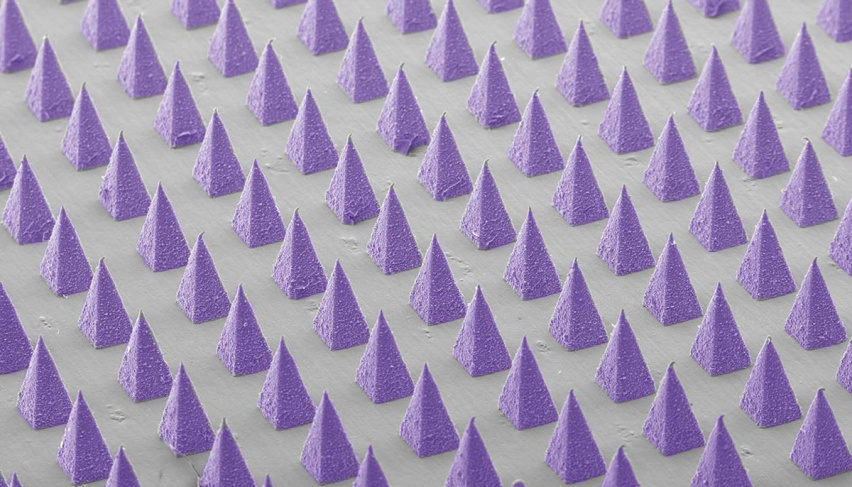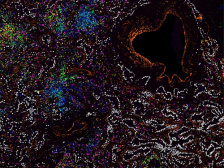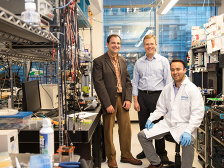
In a Bridge Project-funded collaboration, MIT faculty members Paula Hammond and Darrell Irvine and Dana-Farber Institute oncologist Kevin Elias developed microneedles that can be used to detect ovarian cancer. Credit: Sasan Jalili
Award Types
Footbridge Grants provide $200,000 (total cost) per team per year for 1 year. Funding for the project should be allocated 50/50 between MIT and DF/HCC. Footbridge grants allow newly formed teams to obtain necessary preliminary data/proof of concept, to develop cohesion as a true team, and to strengthen future Bridge Project applications that may emerge from this work.
Traditional Bridge Project Grants provide $400,000 (total cost) per team per year for up to 2 years ($800,000 total). Funding for the project should be allocated 50/50 between MIT and DF/HCC. Funding may be requested for up to a two-year period. Renewal at the end of year one is subject to performance review.
Expansion Bridge Grants provide up to $750,000 (total cost) per team to support the initiation of a Phase I clinical trial or clinical application. Funding allocations between institutions for Expansion Bridge Grants are decided on a per-project basis. Applications for this award type are particularly encouraged. Expansion projects may be based on research previously funded via Traditional or Footbridge awards, but this is not required.
Eligibility
Teams must be composed of at least one Principal Investigator from the KI or MIT and one from a DF/HCC institution: Beth Israel Deaconess Medical Center, Boston Children’s Hospital, Brigham and Women’s Hospital, Dana-Farber Cancer Institute, Massachusetts General Hospital, Harvard Medical School, or Harvard T.H. Chan School of Public Health. Each PI must participate meaningfully in the project as part of their team. Preference will be given to teams employing unique and highly innovative approaches and technologies.
Teams may submit proposals focused on any aspect of translational cancer research, in any tumor type. Preference will be given to projects addressing significant unmet clinical needs requiring improved or new methods for early detection, more accurate diagnosis, monitoring, treatment, and prevention.
Key dates
The 2024 Request for Applications opens 6/17/2024.
- June 17, 2024—release of 2024 Request for Applications
- 10:00AM EDT October 15, 2024—Extended deadline for new Bridge Project applications
- December 13, 2024—notification of applicant teams selected for round-two review
- 10:00AM EST January 21, 2025—final budgets due (teams selected for round-two review)
- February 6, 2025 required virtual review presentation by teams selected for round-two review
- New awards will be announced by February 17, 2025 with funding starting March 1, 2025.
Request for Applications (RFA)
More information can be found on the 2024 Request for Applications
For questions regarding grant types, eligibility or dates, please email ki-bridge@mit.edu.

